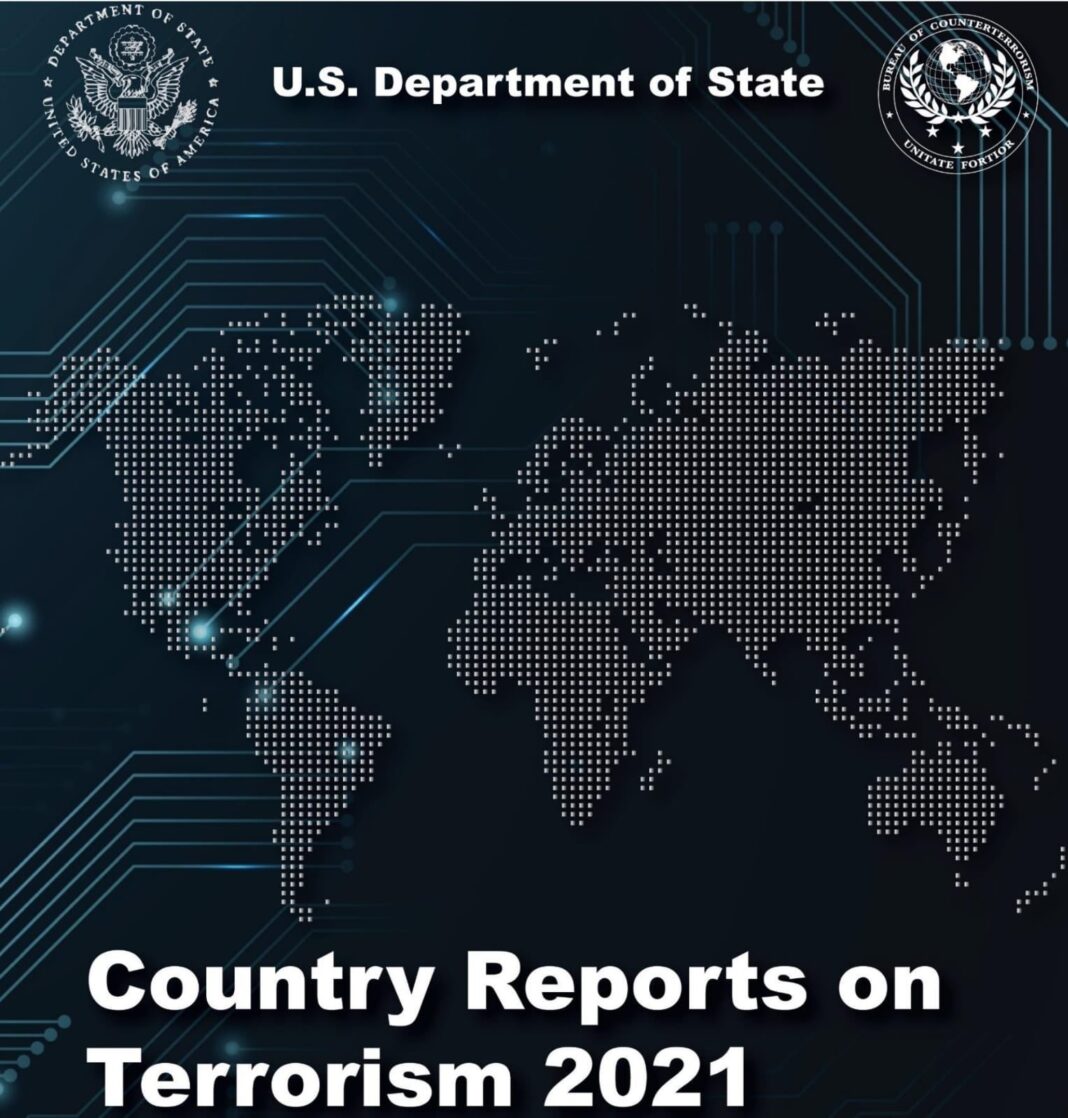Nepal is becoming a transit point for international terrorist groups, the Country Reports on Terrorism 2021 released by the US Bureau of Counter Terrorism said in reference to Nepal.
The US has said that ‘Nepal has and could be used as a transit or staging point for international terrorists’. In the context of Nepal in the annual report released by the US Bureau of Counter Terrorism, this is mentioned on pages 179 and 180 of the 330-page annual report for the year 2021 published on Tuesday.
The report has raised serious questions about the open border with India and the inadequate security protocols at Kathmandu’s international airport. The report rates these two bases as easy entry points for international terrorist groups into Nepal.
Tribhuvan International Airport is unsafe
It has been said in this report that the security system of Nepal’s airport is very weak and inadequate. Kathmandu’s Tribhuvan International Airport does not prescreen passengers, and landing data are not entered into any database. Physical security checks of passengers are rudimentary. There is no travel document security, and the airport lacks ultraviolet lights to examine documents. The Special Bureau of the Nepal Police assigns approximately 10 personnel to the airport and approximately 15 officers to its INTERPOL office, which is located at Nepal Police headquarters. The INTERPOL office has no designated personnel at Tribhuvan International Airport, but communication between INTERPOL and airport personnel does occur. INTERPOL notices are acted on and maintained in a database, but passengers are not routinely screened through this database. Security and immigration officials are generally responsive to U.S. requests for information, but often have little information to provide.
Nepal shares an open border with India
The report has raised serious questions about the open border with India. There are some checkpoints along the 1,000-mile border, but these lack sufficient security controls and are sometimes staffed by only one immigration official. Most people crossing the border are neither stopped nor checked, and the crossing points can easily be circumvented to avoid scrutiny. The primary constraints preventing more effective border-control capability are a lack of resources, information stovepiping among security sector and civilian agencies, and a lack of political will to deploy a more robust approach. The security services lack the personnel, technology, databases, basic equipment, and often electrical power, to provide effective border control. Additional constraints include lack of training and widespread corruption.
A global media for the latest news, entertainment, music fashion, and more.




